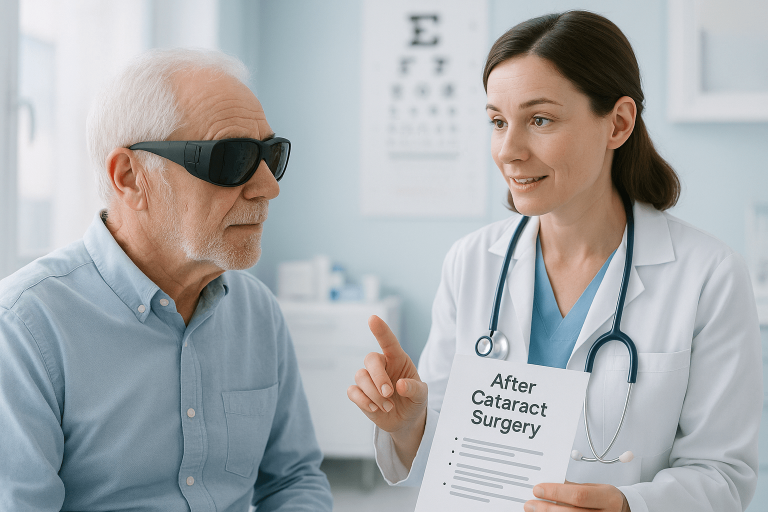
After your surgery, a shield will be placed over your eye. Please make sure to keep the shield on overnight for a week, as this will prevent accidental rubbing of your eye.
You may leave on the same day and within an hour of your surgery, but you cannot drive yourself. Please ensure you have someone to take you home.
While a minority of patients report excellent vision a few days after surgery, it is normal for your vision to remain blurry during the first week. Please keep in mind that vision might take several weeks to improve gradually.
It is normal to notice some redness, irritation, watering, or a gritty sensation in the eye, but severe pain should never occur. Please contact your doctor if you experience significant pain.
Please get plenty of rest and take it easy on the day of your surgery. Remember, you should avoid any heavy exercise, strenuous activity, bending forward, or heavy lifting for 2 weeks. Also, steer clear of gardening for 2 weeks. Your hands can become contaminated with soil and germs, which may be transmitted to the eye through fresh wounds, leading to a potentially blinding infection.
Keep your eye away from water, dust, soap, or any irritants. You should avoid washing your face, rubbing your eyes, or taking a shower in the first week after your surgery. This is essential to reduce the risk of infection in your eye.
You will be given eye drops to prevent infection and reduce inflammation in your eye. The instructions will be provided by the ward nurses.
Yes, you’ll see your ophthalmologist within 1-2 weeks after your surgery. This is to ensure your eye is healing well and your vision is recovering. Depending on your eye condition, additional follow-up appointments may be scheduled.
If you’ve had surgery with trifocal intraocular lenses, your vision should be clear at all distances without glasses. If you’ve had surgery with monofocal lenses, you should see your optician 4-6 weeks after the second eye surgery for an updated eye test and glasses.


